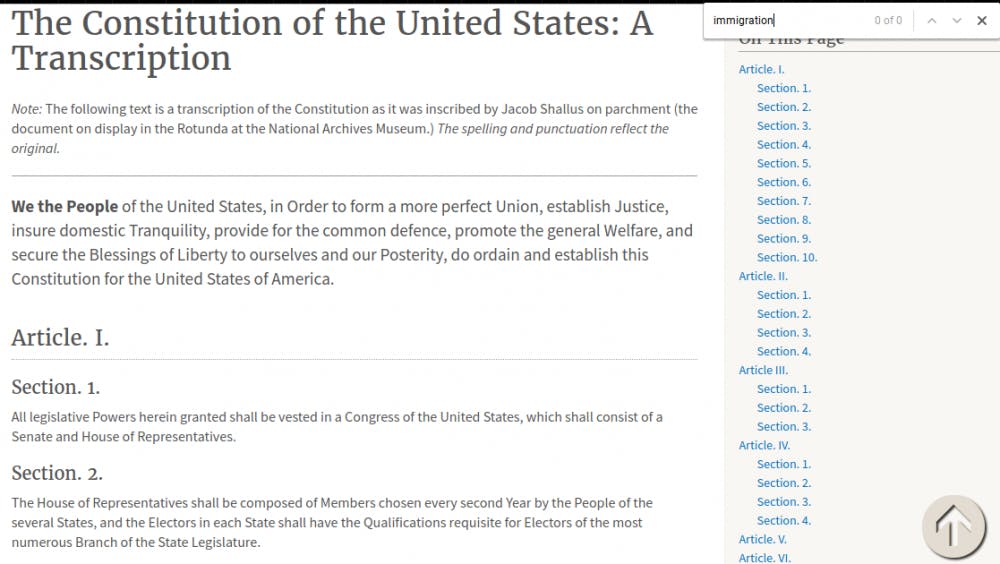There’s nothing like waking up in the morning and reading a column that makes your blood boil.
Following the recent news regarding the impending end of the Deferred Action for Childhood Arrivals program (DACA), which granted deferred deportation and work permits to undocumented people who were brought to the U.S. as children, I’ve seen a lot of tomfoolery.
This recently published column is riddled with problematic statements that are claims with neither warrants nor evidence and also loaded political language that decreases the authority of the author. This is not the way we should think and talk about the issue and instead feels more like some sort of ploy for self-satisfaction by means of soapbox; the author isn’t changing anyone’s mind.
If you ignore all the ranting, mud-slinging, and unsubstantiated claims, you will soon find yourself at the paragraph where the author invokes the Constitution. Specifically, that “The Constitution specifically grants Congress authority on issues dealing with immigration.” Now allow me to provide a simple refutation:

Well, that’s very specific of the Constitution to mention immigration, ain’t it?
I mean, like, I guess the Constitution does specifically talk about granting Congress authority on establishing “uniform Rule of Naturalization,” but naturalization and DACA are two separate things. Naturalization is the process of getting U.S. citizenship while DACA is not. Per U.S. Citizenship and Immigration Services, “deferred action does not provide lawful status.”
So no, the Constitution, in fact, does not convince me on this matter.
Next is the argument of, “Why should we grant illegal immigrants greater privileges than citizens, or even legal immigrants for that matter?” to which I say that we are not. We are simply giving people who were placed in a sticky situation peace of mind while they try to work things out.
To rebut “we are essentially doing all of these things” as a bad cover for a bad argument — two plus two is essentially five — but I sure wouldn’t recommend writing a column arguing so.
The people who DACA covers generally did not come here on their own accord. As the story typically goes, they were brought here by their parents. The boy who crossed the border at the age of 5, holding the hand of his mother, cannot be expected to understand the implication of his actions. How can the author of the column expect children to understand immigration when he himself does not understand immigration? He mischaracterizes these people as people who willingly broke the law to pursue their dreams, and that signifies either gross misunderstanding of the program or deliberate antagonization of people who came here without a say in the matter.
Remember all the positive impacts that immigrants of all kinds and classifications have had on our country. Do not forget all the injustices our country has perpetuated and still perpetuates toward these same people. Documented or not, rich or not, educated or not, these people are still our co-workers, neighbors and friends.
It’s a messy situation. There is, I concede, an argument for executive overreach. Some students don’t even know their immigration status until later in their life. Congress has a lot of work to do in order to save the program. Perhaps by President Donald Trump having Congress act, we can further solidify the status of this program.
But don’t dehumanize innocent people amid of all this. Our dreams are not mutually exclusive.
Zachariah Chou is the Student Government senator (Independent) for Infinity Hall.
Editor’s note: Zachariah Chou formerly worked as a paid photographer for the Alligator.





